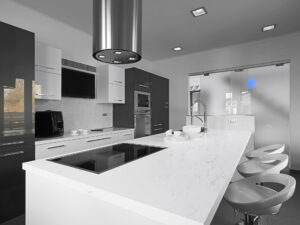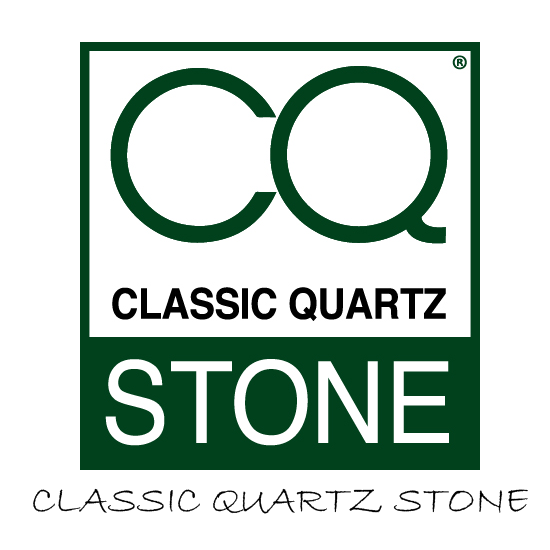Ceramic vs Quartz Stone for Kitchen Islands
 Quartz and ceramic are the materials that have been some of the most sought-after in recent years. The reason for that is that they are a great replacement for more expensive natural stones. Choosing one or the other requires great research and thought, so we have decided to sum it all up for you. Continue reading and find out whether ceramic or quartz stone will be better for your kitchen island.
Quartz and ceramic are the materials that have been some of the most sought-after in recent years. The reason for that is that they are a great replacement for more expensive natural stones. Choosing one or the other requires great research and thought, so we have decided to sum it all up for you. Continue reading and find out whether ceramic or quartz stone will be better for your kitchen island.
1. Both are non-porous
Non-porous materials do not absorb water and liquids. They are highly resistant to staining, which makes them perfect for food preparation and consumption. You will never have to worry about stains with both, even on white worktops.
2. Resistance to high temperatures
Ceramic is produced at temperatures that are over 1000 degrees Celsius. It will not break or melt when you postpone hot kitchenware on it.
Quartz has moderate resistance to heat. It is made of natural quartz stone and resins; resins tend to expand on higher temperatures, so it is best to use mats with quartz.
3. Cleaning and maintaining
Both materials have smooth surfaces and are therefore easy to clean. All you will need for cleaning is soap and water. Make the soapsuds and wipe the surfaces with a soft cloth. Rinse off with water.
4. Durability
Quartz is tougher and more resilient than ceramic. It will handle pressure and impacts of force without breaking. It is also highly resistant to scratching and you can cut directly on it, just beware that you can dull your knives.
Ceramic is not as durable and it is prone to chipping. Ceramic can also break under pressure, so paying more attention to it is advised.
5. Colour palette
As manufactured materials, they both have wide colour ranges. During their production, the pigments are added to make patterns or change their colour. They can even look like other stones, such as marble or granite.
They both have wide colour ranges and you will have the ability to choose from numerous colours with both.
6. Price
These materials are in the same price range. The price is depending on the colour; rarer colours tend to be more expensive than the common ones. The difference is that ceramic is not as readily available as quartz and there are fewer certified fitters for it.
Although these materials have much in common, the biggest differences can lead you to one or the other side. The main difference is the durability; quartz worktops are much more durable than porcelain and will therefore last you longer. Since the price for both materials is around the same, investing in quartz for your kitchen island will be smarter since it will last you longer.
Having doubts about whether to choose ceramic or quartz for your kitchen island? Please feel free to contact us and we will be happy to help you.
